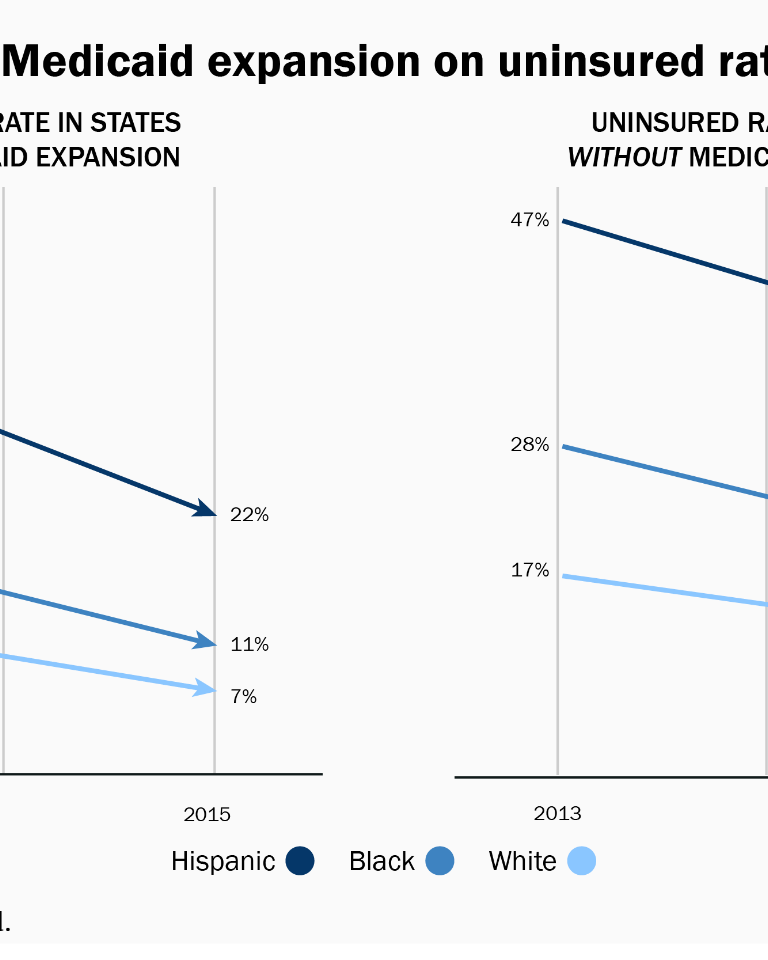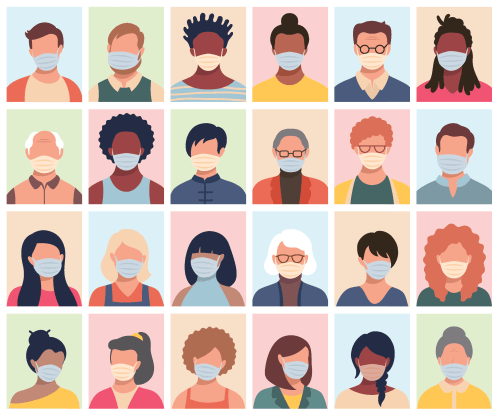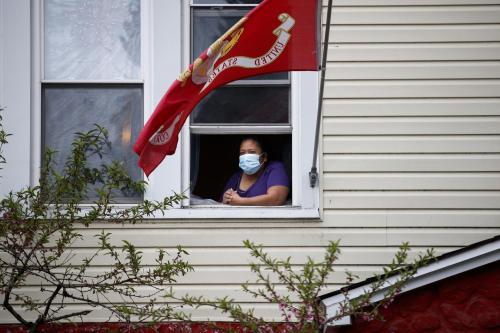The Latino community has been disproportionally affected by COVID-19, with almost three times as many cases per head among Latinos than among whites, and a hospitalization rate 4.6 times higher. But the specific challenges faced by Latinos in terms of health outcomes and healthcare access long predate the pandemic.
Latinos are the second-fastest-growing racial/ethnic group in the country and they are diverse in many regards. As a whole, Latinos suffer from poorer health on many measures. At the same time, they are less likely to have access to high-quality care. Improving Latino health will require concerted policy intervention on both fronts.
Poorer Latino health…
One in two Latinos will develop diabetes over their lifetime. Latinos are at a 66% greater risk of developing type 2 diabetes, and once diagnosed, have worse outcomes than non-Hispanic whites. Diabetes often brings mental health problems in its wake: one in five diabetics have depressive symptoms. But Latinos are also less likely to receive treatment for depression, anxiety, and other behavioral issues than their white counterparts.

… and less access to healthcare
Health and healthcare have a two-way relationship. Poor healthcare leads to poor health, which then makes healthcare more expensive and less accessible. The Affordable Care Act has narrowed racial gaps in access to healthcare, but Latinos are still nearly 3 times more likely to be uninsured than non-Hispanic whites.
One in four Latinos have no health insurance

The progress made in expanding health insurance coverage for Latinos is now at risk, because of the COVID-19 economic recession’s disproportionate impact on Latino workers. 37% of Latinos have had someone in their household lose their employer-provided health insurance benefits during the recession, according to a survey conducted in June 2020 by Abriendo Puertas/Latino Decisions.
Cultural barriers, such as the fact that nearly a third of Latinos are not fluent in English, also make the healthcare system less accessible to those who often need it the most.
Policies for better Latino health
Policies for improving Latino health vary in scope. Some address systemic issues that affect Americans’ health and healthcare at a national level. Others promote community-level efforts that target Latino populations. Here are some ideas:
- Expand Medicaid: States that expanded Medicaid under the Affordable Care Act have narrowed the gap in uninsured rates for Latinos more than states without the expansion.
Medicaid expansion narrowed the gaps in the uninsured rate

Latinos accounted for nearly one third of all Medicaid enrollees in 2018. The expansion of Medicaid would disproportionately improve their healthcare access.
- National tax on sugary drinks: For every one to two daily servings of sugar-sweetened beverages consumed, the lifetime risk of developing diabetes increases by 30 percent. Latino infants and children consume more sugar-sweetened beverages than their non-Hispanic white peers. A national tax on sugary drinks would reduce the level of consumption and improve health outcomes related to diabetes.
- Therapy for all: The U.S. should provide universal free access to therapy. While challenging to implement, we believe that the many benefits of this proposal outweigh the costs. The universal nature of the policy could help make progress in both increasing access to therapy and destigmatizing it.
- Promotores de salud (community health workers): Promotores de salud, or community health workers, help provide health education and outreach services to Spanish-speaking communities across the country. Promotores come from communities similar to the ones they serve, so they are well-equipped to help community members navigate language and cultural barriers in the healthcare system. These programs have been found to improve health behaviors that prevent cardiovascular disease and cervical cancer. They are now being used to promote best practices regarding COVID-19 in Latino communities. Many Promotores programs receive funding from the CDC’s Racial and Ethnic Approaches to Community Health (REACH) program. We support the expansion and increased funding of the REACH program.
- Healthcare for undocumented immigrants: Half of all foreign-born, non-citizen Latinos lack health insurance. The first COVID-19 stimulus bill passed in March notably did not expand Medicaid eligibility to undocumented immigrants, excluding many of them from COVID-19 testing and treatment options, even as many put themselves at risk working essential jobs. Future COVID-19 bills should expand Medicaid eligibility to cover the medical needs of undocumented citizens (the Democrats’ HEROES Act does this). More generally, bills like the HEAL Act should be passed to expand immigrants’ access to Medicaid. Since 77 percent of all undocumented immigrants are from Latin America, these policies are largely a Latino health issue.
Improving the health of Latinos demands bold policies: ones that both address the systemic issues that all Americans face and that invest in Latino community programs. In the harsh light of the pandemic, this challenge is clearer – and more urgent than ever.








Commentary
Latinos often lack access to healthcare and have poor health outcomes. Here’s how we can change that
September 25, 2020